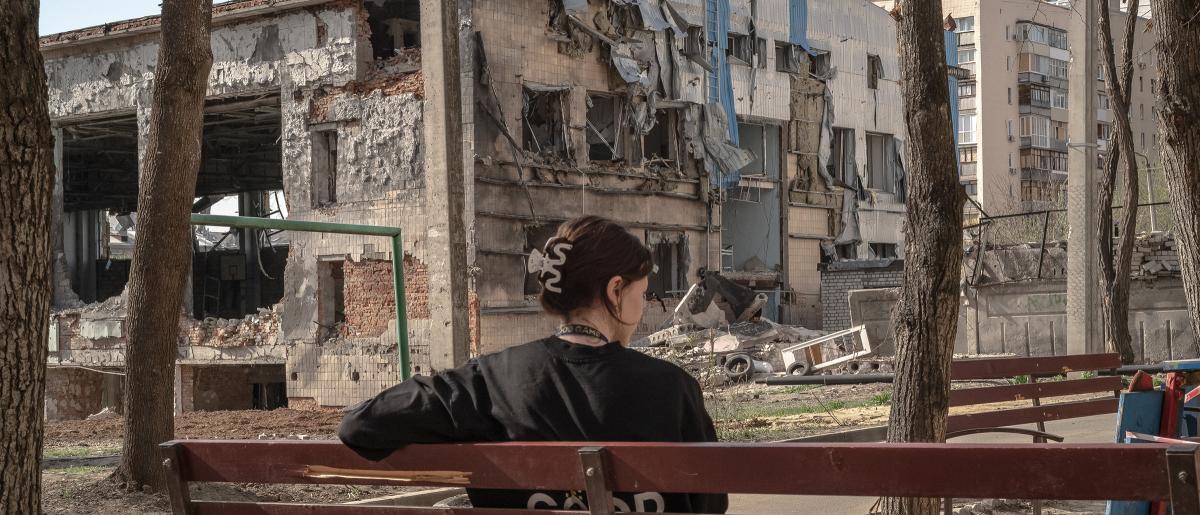As former President Donald Trump is acclaimed as the winner in the 2024 U.S. presidential election, Ukraine’s leadership offered a cautious congratulations, acknowledging the potential shift in U.S. policy that could have dire consequences for Ukraine’s ongoing struggle against Russian aggression. While Kyiv is focused on securing continued military and financial aid from Western allies, the prospect of Trump’s return to power is raising alarms within Ukrainian circles about a possible shift in American support, with the country potentially facing an outcome that could undermine its territorial integrity and security.
Trump’s Promise to End the War in 24 Hours
During his campaign, Trump has repeatedly stated that, if re-elected, he could end the Russia-Ukraine war within 24 hours. However, his solution has raised concerns in Ukraine. Trump has suggested that the U.S. should condition its military aid to Ukraine, signaling that he would be willing to halt funding if Ukraine doesn’t agree to a negotiated settlement with Russia.
Trump’s promise to end the war by forcing a negotiated deal could involve pressuring Ukraine into agreeing to concessions, such as territorial compromises. This approach contrasts with the current policy of President Joe Biden, who has firmly supported Ukraine’s right to sovereignty and territorial integrity, providing billions in military aid and weapons to help defend against Russian forces.
- Trump’s Strategy: Trump has stated that he would “negotiate peace” with Russian President Vladimir Putin and, by leveraging the threat of cutting off U.S. support, could bring both parties to the table for an agreement. The former president has long expressed a preference for diplomatic solutions with Russia and has even been criticized for his friendly rhetoric toward Putin during his first term.
Ukrainian Fears: A “Bad Peace” with Russia
For Ukraine, Trump’s potential return to power raises the specter of a “bad peace”—a negotiated settlement with Russia that would likely leave Ukraine with significant territorial losses and weakened sovereignty. Ukrainian officials have expressed fears that a deal brokered by Trump, or even pressured by the United States, could involve compromises that would allow Russia to annex Ukrainian territory or force Ukraine to accept a separate peace on Russia’s terms.
- Territorial Integrity: The annexation of Crimea in 2014 and Russia’s continued push into eastern Ukraine are seen by Kyiv as attempts to dismember the country. A “bad peace” could force Ukraine to accept the loss of Crimea or portions of the Donbas region, areas that Russia has sought to control. Analysts warn that any peace agreement that includes territorial concessions would have devastating long-term consequences for Ukraine’s national identity and security.
- Impact on NATO and EU Aspirations: Ukraine has been seeking membership in NATO and the European Union as part of its broader strategy to strengthen its defense and economic position. A compromise peace under Trump’s approach could undermine these aspirations, leaving Ukraine vulnerable to future Russian aggression.
A Shift in U.S. Policy under Trump?
Trump’s foreign policy approach has always been more transactional and America-first than that of his Democratic predecessors. If re-elected, his strategy might favor a reduced U.S. role in foreign conflicts, particularly in Europe, where the burden of defense should, in his view, be shared more equitably by NATO allies.
- Cuts to Military Aid: Analysts predict that if Trump follows through on his threats to cut military aid to Ukraine, this would leave Kyiv heavily dependent on European countries for support. This shift could also impact Ukraine’s ability to maintain military momentum against Russia, especially as the war has become a protracted conflict.
- Pressure on NATO Allies: Trump has consistently criticized NATO members for not meeting defense spending commitments. With Trump back in office, there is concern that the U.S. could pressure NATO allies to reduce or limit their military and financial support for Ukraine, weakening the coalition’s resolve and leaving Ukraine more isolated.
Ukraine’s Strategic Calculations Amid Political Uncertainty
As Ukraine continues to fight for its sovereignty, its leadership is closely monitoring the evolving situation in Washington. Ukrainian President Volodymyr Zelensky, who has built a strong relationship with the Biden administration, may find his diplomatic options limited if Trump takes office. However, Ukraine is also working to diversify its support by bolstering ties with European nations and seeking deeper cooperation with the European Union.
Ukraine has publicly expressed concerns over Trump’s statements regarding potential peace negotiations with Russia, but Kyiv remains focused on maintaining the support of the U.S. and its Western allies. While many Ukrainians hope that Trump’s rhetoric is simply campaign hyperbole, the possibility that Trump might actively push for a deal with Russia remains a significant concern for the country’s future.
- Diplomatic Efforts: Ukraine’s diplomatic strategy will likely involve continued lobbying of U.S. lawmakers and European leaders, stressing the importance of a united front against Russian aggression. The leadership is aware that, regardless of the U.S. president, the international community must maintain a strong stance in support of Ukraine’s independence.
Conclusion: The Stakes for Ukraine’s Future
The possible return of Donald Trump to the presidency presents a difficult dilemma for Ukraine. While Trump’s promises to end the war quickly could be seen as an opportunity for peace, they also raise the prospect of a compromise peace that could have disastrous consequences for Ukraine’s territorial integrity and long-term security. With military aid and political support from the U.S. and NATO on the line, Ukraine faces an uncertain future as it continues to defend itself against Russia’s aggression.
The 2024 U.S. election is more than just a domestic event—it has the potential to reshape the future of Eastern Europe and the broader geopolitical landscape, with Ukraine’s sovereignty and territorial integrity hanging in the balance.
References:
- The Washington Post – Analysis of Trump’s foreign policy stance on Ukraine and Russia.
The Washington Post – Trump’s Foreign Policy - Reuters – Coverage of Ukraine’s reactions to the 2024 U.S. election and potential shifts in American support.
Reuters – Ukraine and Trump - BBC News – Insights into Trump’s approach to NATO and military aid to Ukraine.
BBC News – Trump and NATO



